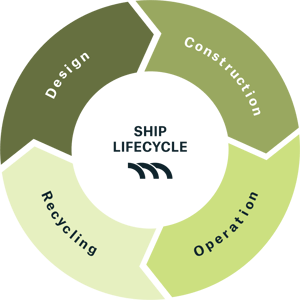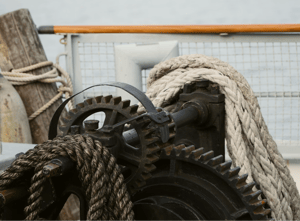Understanding lifecycle assessment
Lifecycle Assessment (LCA) is vital for understanding your product’s full environmental impact. It ensures compliance with sustainability standards, and identifies opportunities for improvement. For shipowners, LCA is key to staying competitive and future-proofing operations.
As regulations become stricter, this document will be essential for every product. For shipowners developing newbuildings, having an LCA ready is key to meeting industry standards and advancing your business.

Be recognized for transparency and environmental leadership with verified sustainability data.
Identify key areas to improve your Environmental, Social, and Governance (ESG) metrics.
Use insights for optimizing future projects, products, and facilities.

How does it work?
The assessment includes all stages of a life cycle, from raw material mining, via manufacturing processes, to waste management - including all transport and energy consumption in all tiers.
Through data collection, process modelling and computation, we provide a complete assessment of the total environmental impact of your ship.
Through a Life Cycle Assessment (LCA) or Carbon Emission Computation (CEC) we quantify the environmental impacts associated with all stages of your ship’s life.
Our methods comply with relevant guidelines and standards, including GHG Protocol, ISO 14040, ISO 14067.
Why do you need a Life Cycle Assessment?
Life cycle assessment (LCA) helps the maritime industry reduce environmental impact and meet global regulations by analyzing a vessel’s full lifecycle, from slipway to dismantling.
LCA improves energy use and reduces emissions, ensuring sustainability compliance, enhancing efficiency, and building stakeholder trust.






